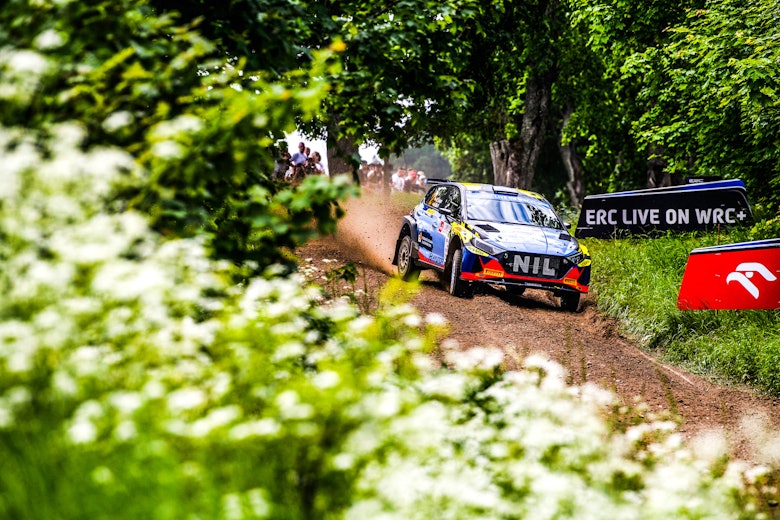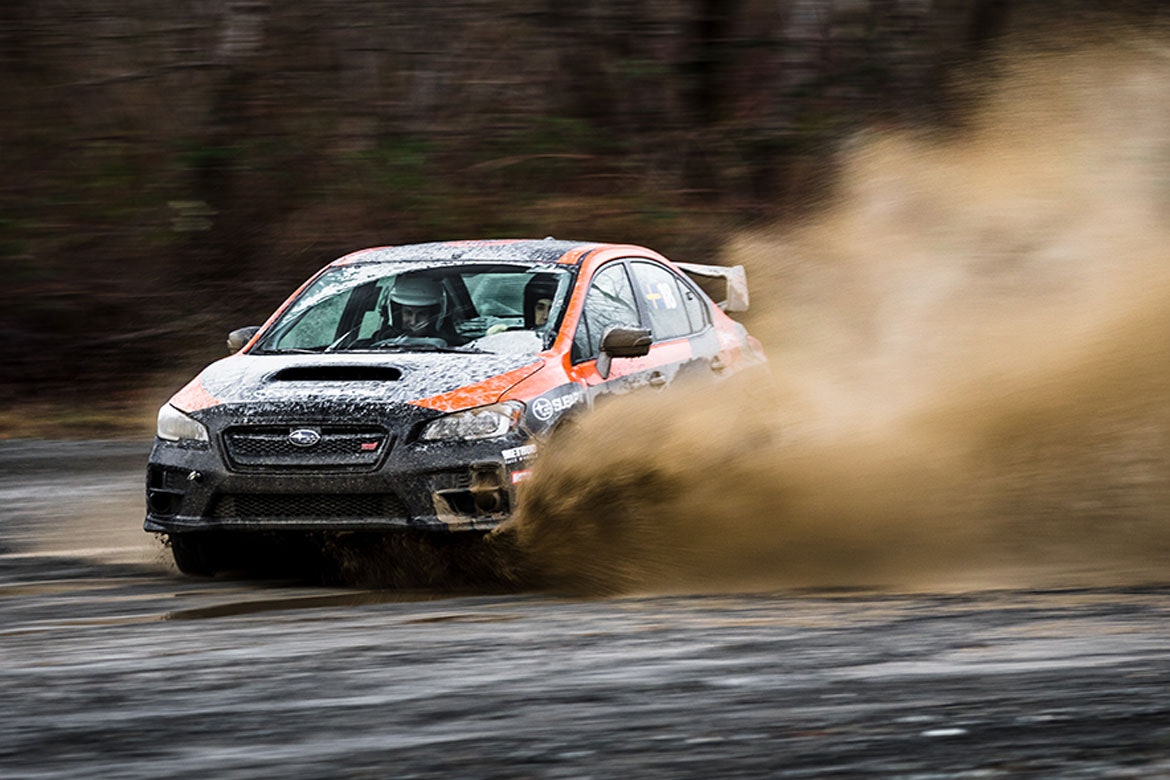Efrén Llarena, sitting in the box seat to win the European Rally Championship this year, was in the thick of a fight for a podium against Yoann Bonato on Rally di Roma Capitale last week.
At the end of Affile Bellegra, the 10th stage of the rally, he was momentarily distracted at the stop line. He’d noticed something.
“I don’t know who is in the number 12 but he did a really good time here,” Llarena mused.
That he did. It was the first stage win of the rally for car number 12. Two more followed – including the powerstage, for which the driver of number 12 scored five bonus points.
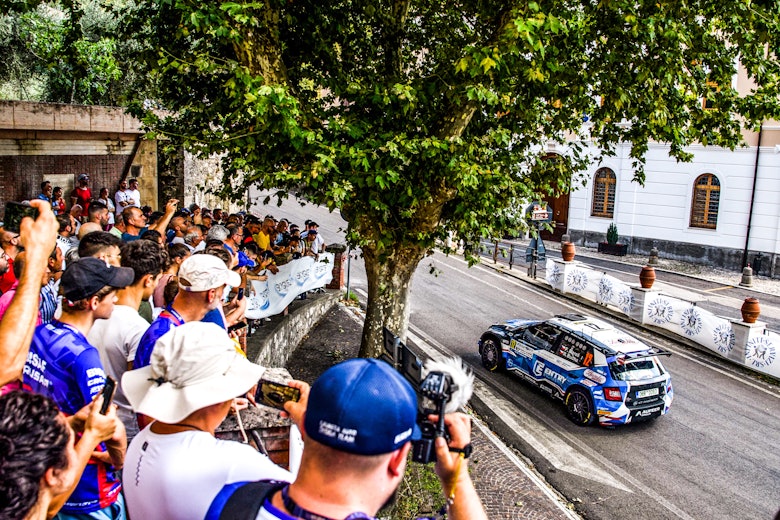
Llarena would undoubtedly have known off the top of his head who was in car number 12, had it not lost 10 minutes after the first stage of the rally. Because it would have been on the brink of taking third place away from him otherwise.
That number 12 Škoda Fabia Rally2 evo was being piloted by a past ERC champion. Filip Mareš had pulled off a heist for the ages three years ago when he beat Chris Ingram to the ERC1 Junior title by 0.3s, stealing the crucial class win on Barum Rally Zlín on the very last stage. But with the COVID-19 pandemic derailing his rise up the ranks towards the WRC, he’s spent the last two years rebuilding.
He’d put in an understated seventh place on the previous round of the season, Rally Poland, a rare gravel event for the Czech driver whose national series is dominated by asphalt roads. But rocking up to Rome the signs were much better.
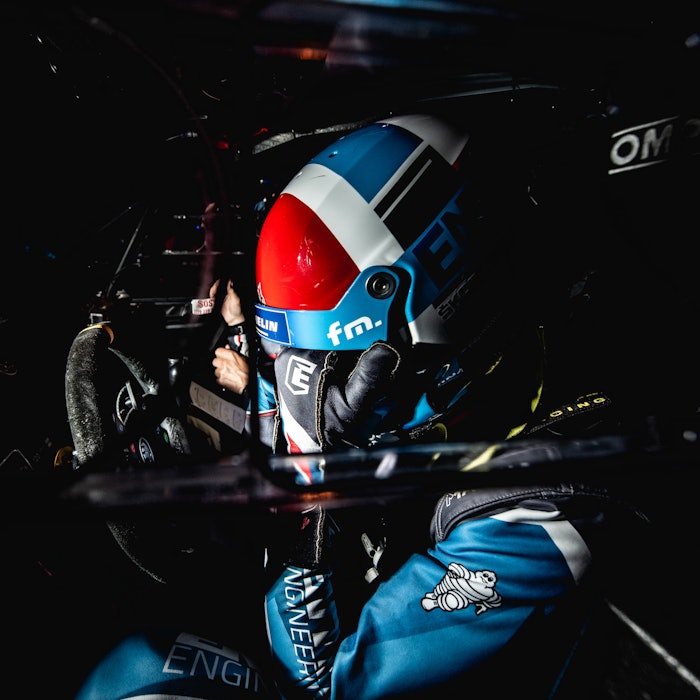
In the dark, in the exit of the highway is not an easy place to fix it.Filip Mareš
His rally had started well, going third-fastest on the Colosseum superspecial. By the finish, he’d been only 9.1s slower across the entire rally than Bonato, who pipped Llarena to the final podium place. And that with a spin on the second pass of Rocca di Cave that, by his engineer’s estimation, had cost him 14s.
Mareš did not finish right behind Bonato and Llarena. He was miles adrift in 30th place. The front-left wheel bolts had failed on the road section between Rome and the service park over 50 miles away, forcing him to retire after only a single mile of competitive stages had been run.
How did that happen?
“Unfortunately, I probably know why,” Mares told DirtFish. “We hit an anti-cut marker in the second free practice, at very low speed in the first corner. You can see it on the video from my Facebook.
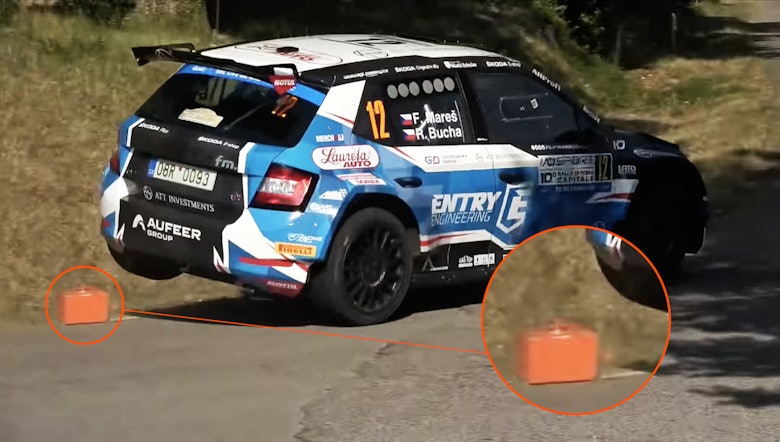
“I was quite sure that I would suffer a puncture because it was quite a big impact and the anti-cut is made of iron, so I’m sure it must be a puncture. But after one or two kilometers I realized there was no puncture, so I was again on my pace until the finish line.
“I was, let’s say, just in my racing mood, not thinking about the consequences of this impact. But I told my mechanics and my team to check everything before qualifying. For sure the team checked the car; we took new tires and then we did qualifying. Then we went to Rome, did the first stage.”
It was on the way back that disaster struck. Around 12 miles from the safety of service, the front-left buckled. With no wheel studs, simply getting the spare out of the boot and fitting it wouldn’t fix anything.
Luckily for Mareš, he works on his own car back at base in the Czech Republic alongside the full-time mechanics. So he set to work. The road section was long, “about one hour more than we needed,” by Mareš’ estimation.
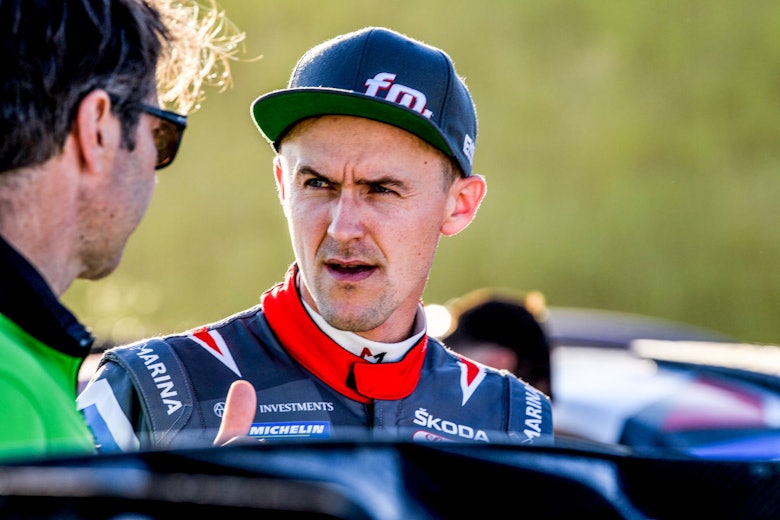
And his attempted solution was, given the circumstances, a clever one.
“[In the] first five minutes we were just thinking about the problem because it was quite a complicated situation: In the dark, in the exit of the highway is not an easy place to fix it, and with limited possibilities in terms of tools and so on.
“But finally, we found a solution.
“I changed the upright from the front left, which had the problem, to the left rear because I knew if I was trying to get the car into Fiuggi with the front left broken, I might damage the gearbox, which is crucial in terms of budget.
“For the rally that would be a problem as there’s just a 15-minute service [before Saturday’s stages]. If you want to change gearbox in a 15-minute service, it’s not possible. But if you want to change a rear differential, this is possible without any problems. That was my attitude.
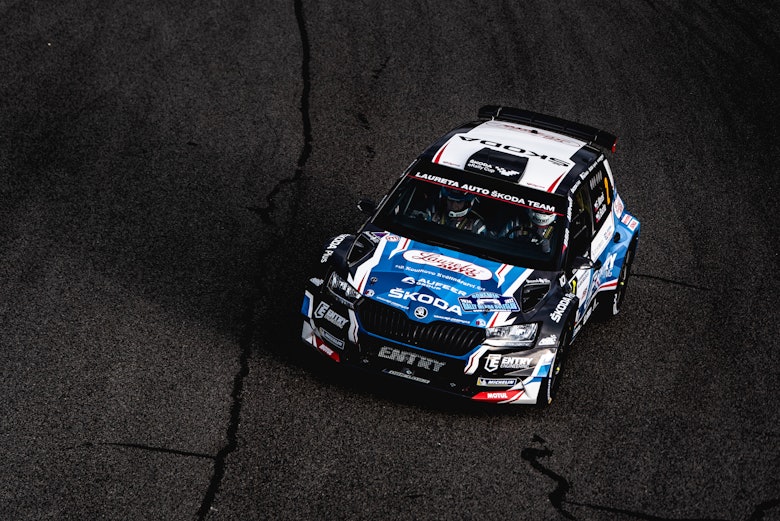
“So I change the upright, moved the brakes, removed the rear driveshaft and tried to use the belts to fix the wheel directly into the upright and try to go to Fiuggi.
With the rear driveshaft gone, he’d turned his Fabia into a front-wheel-drive Rally2 car, and the rim was fixed onto the hub – although the brakes weren’t working.
Alas, it did not work. Mareš had barely traveled more than a mile when the wheel came off again. And this time he couldn’t continue.
With that, he incurred a 10-minute super rally penalty, retiring so the car could be properly fixed up ahead of the next day.
There would be no silverware for Mareš in Rome. But his home ERC round is next, an opportunity for redemption and to turn that pace into a meaningful result.
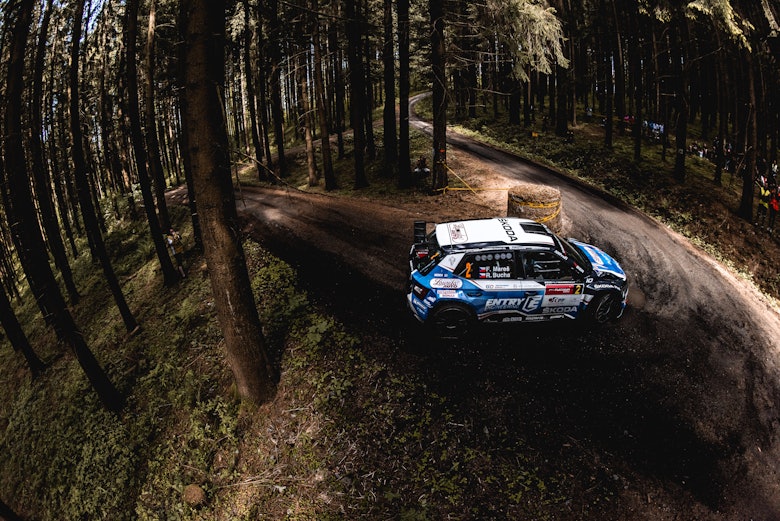
“We were quite confident before Italy. But I was still quite surprised by our pace. I hoped that we were able to do that,” said Mareš.
“It was a nice mark for us that we were on the pace from the beginning of the rally, since qualifying, and then almost everything that went well for us except this time penalty and these other things around like the retirement.”
You’d have to imagine Llarena will have Mareš’ car number memorized on the next round.
